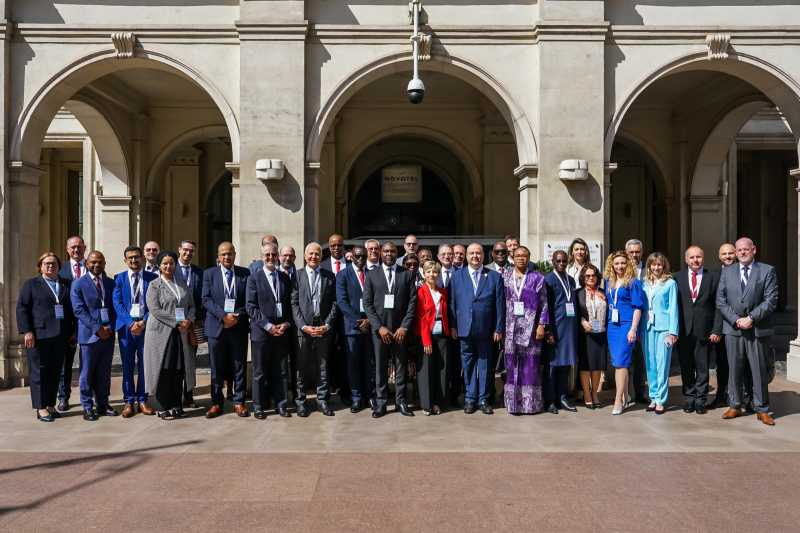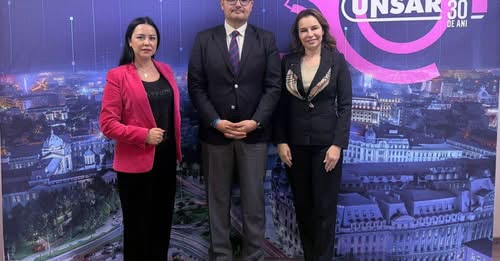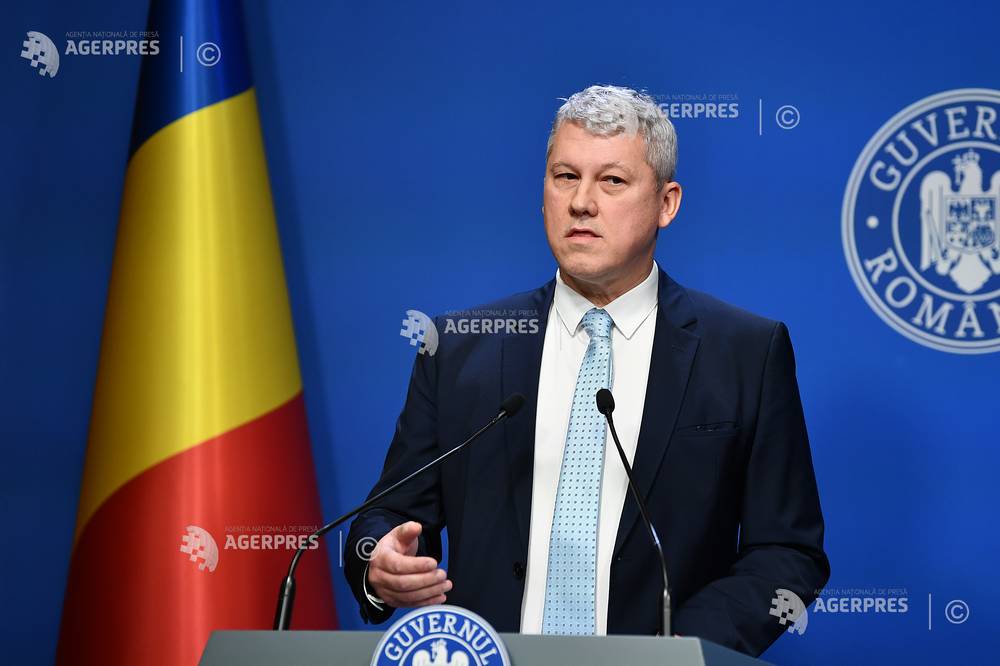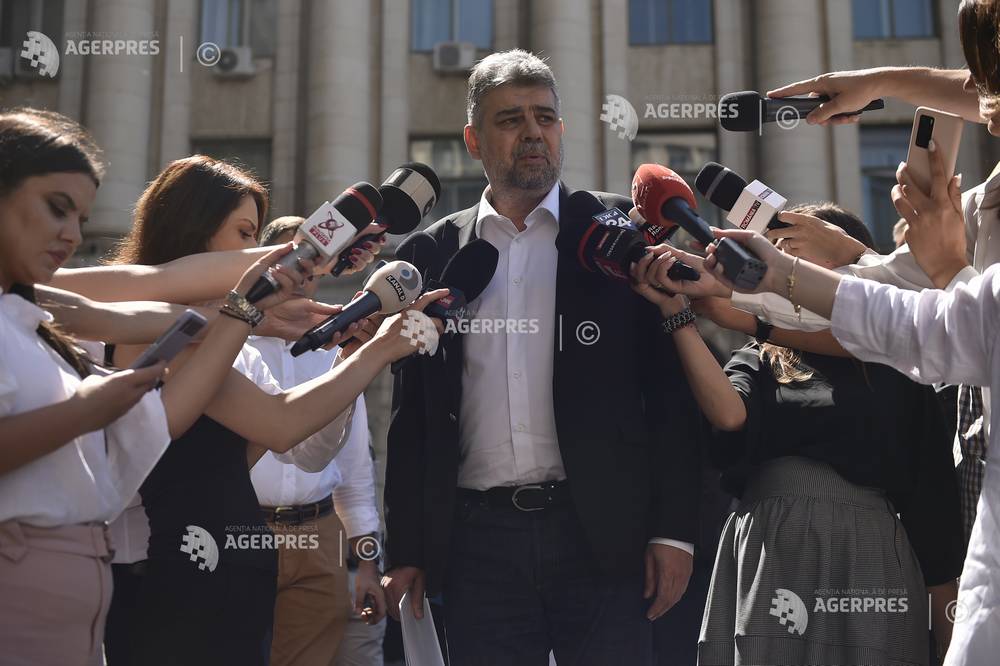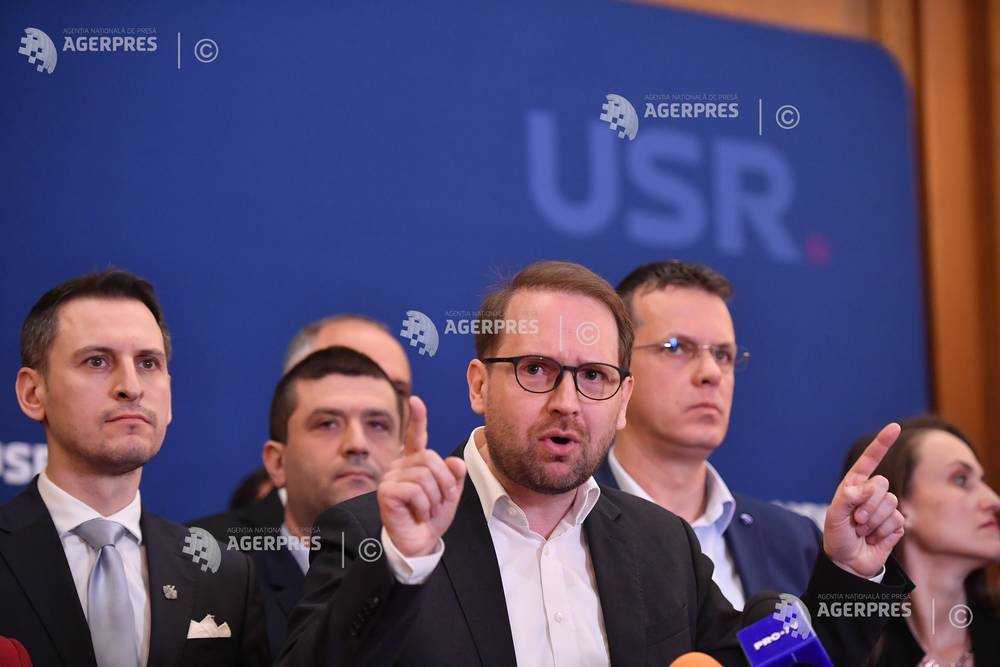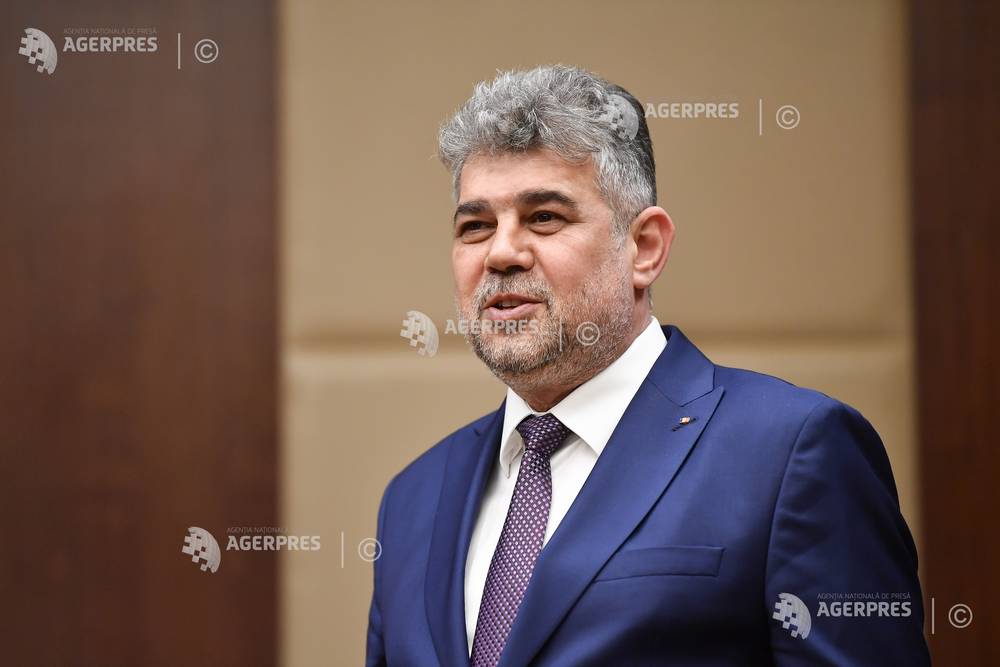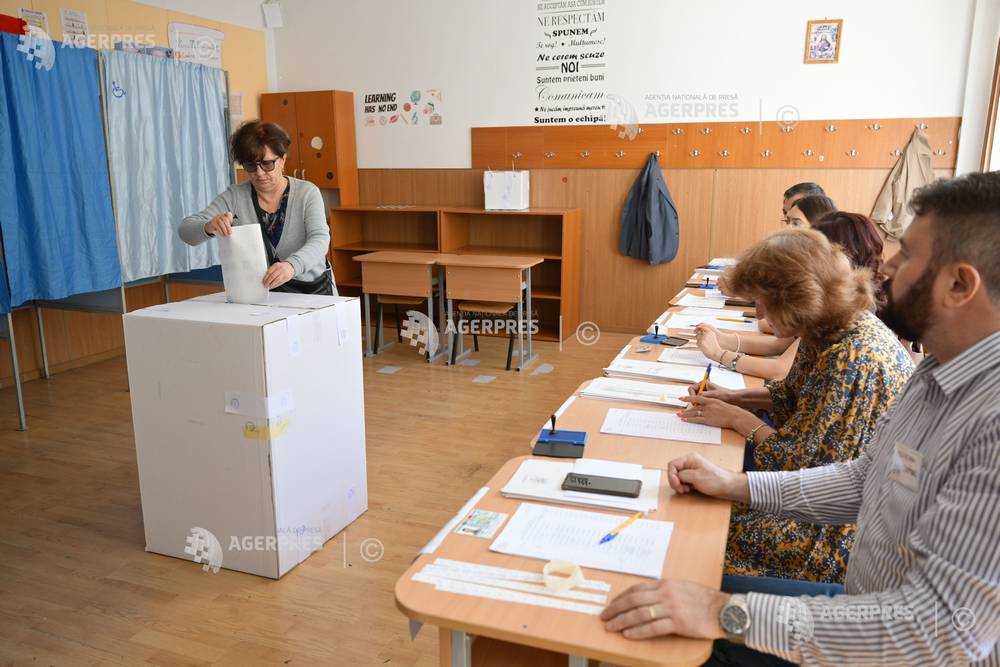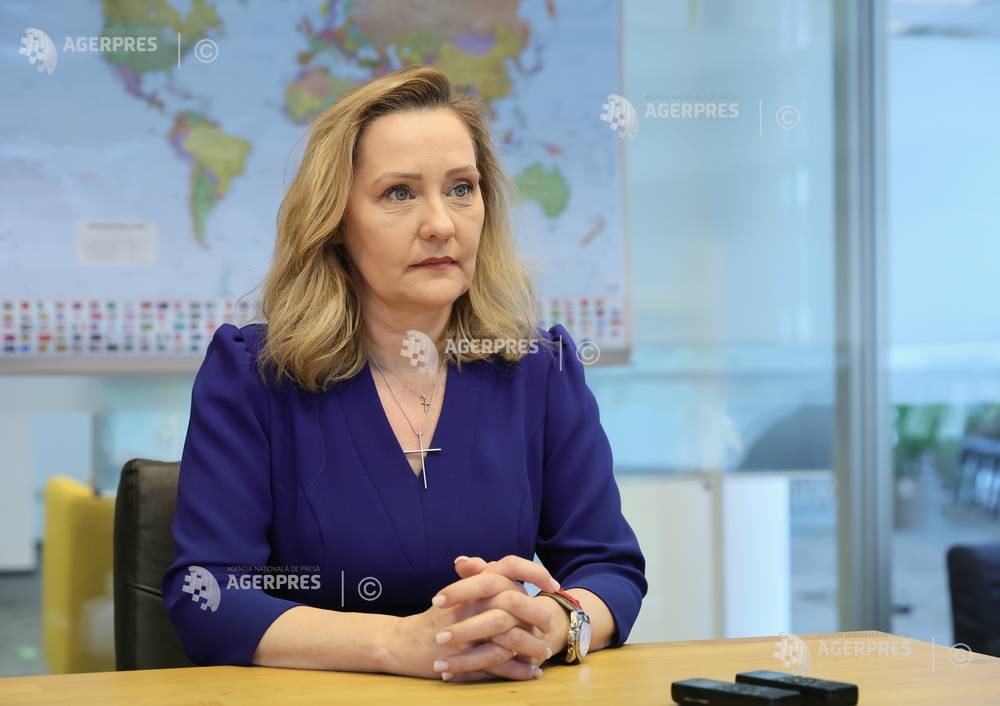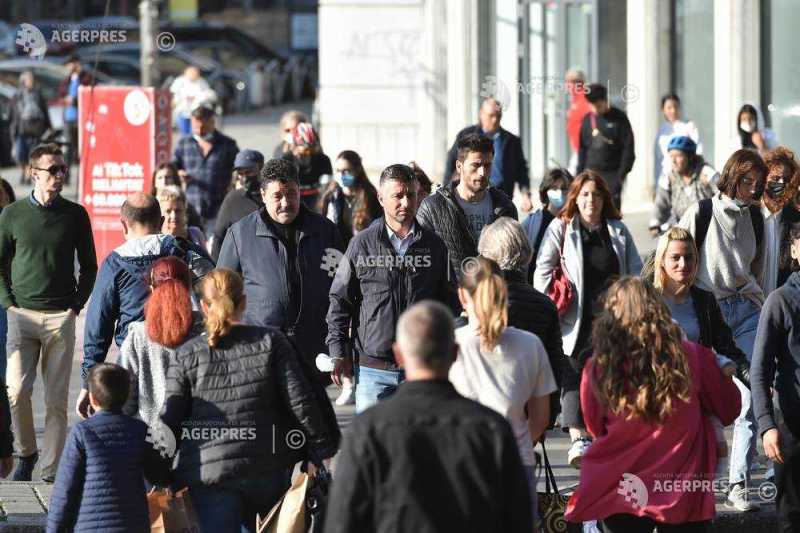CONTEMPORARY AUTHORS/Lora Nenkovska: 'Romanian literature deserves to be known profoundly'
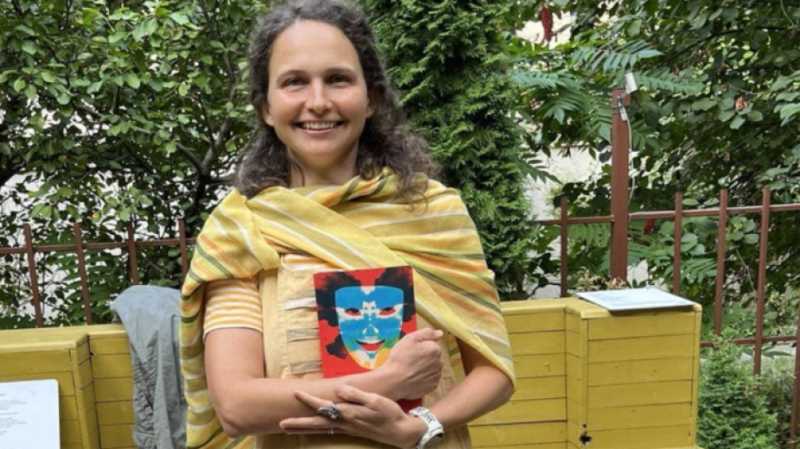
Romanian contemporary literature seems to be better integrated with the international circuit, thanks both to the constant institutional support it receives and the festivals, translations, residencies, magazines, public debates that help promote it, said Lora Nenkovska, translator and lecturer of Romanian language and literature at the 'Kliment Ohridski' University in Sofia, in an interview with AGERPRES.
Although she studied several Balkan languages at the Faculty of Philology in Sofia, she revealed in this interview what made her choose Romanian, in the end, while she also spoke about her current projects in both Romania and Bulgaria. Passionate about the Romanian language and literature, Lora Nenkovska says that she always keeps an eye on the Romanian book market, and that she is also interested in the Romanian theatre and in everything that it's being discussed in the Romanian cultural space. She has also been to Romania recently, where she received a translation scholarship from the New Europe College.
She translated more than thirty Romanian poets, novelists and screenwriters into Bulgarian, among them Andreea Rasuceanu, Bogdan-Alexandru Stanescu, Max Blecher, Simona Popescu, Mircea Eliade, Matei Visniec, Filip Florian, Ioan Grosan, Petru Cimpoesu and others, contributing thus to a an increased presence of the Romanian contemporary literature in Bulgaria and to a substantial expansion of the Romanian-Bulgarian cultural interactions.
Lora Nenkovska was decorated by the Romanian ambassador to Sofia, Brandusa Predescu, with the 'Cultural Merit' Order in rank of Knight, category F, 'Cultural Promotion', during a ceremony that took place at the Romanian Embassy headquarters in the Bulgarian capital city on April 8. This prestigious decoration was bestowed upon Lora Nenkovska by the Romanian president as a token of high appreciation for her contribution to the promotion of the Romanian language, culture and civilization in Bulgaria, through her activity of more than 15 years as a lecturer and translator of Romanian language, as well as for her contribution to strengthening the cultural ties between the two states.
AGERPRES: Why Romanian?
Lora Nenkovska: By a happy chance, I chose to study Balkan Studiesy at the University of Sofia, wanting to learn more about our neighbouring countries and also because I believe that language and literature are the best ways through which one can know other cultures. And I was very pleased with the programme they offered there. However, many years passed and I can say now that I never regretted, not even for a second, that I made this choice. I studied Balkan languages there, literature, history, linguistics (quite a lot) and many other very interesting subject matters in this area of culturology. But my first serious encounter with the Romanian language and culture came towards the end of my journey at the faculty, when I received a short scholarship from the University of Timisoara. It was then when I definitely chose Romanian language. After finishing the faculty, I continued with Romanian Philology and, in parallel, I did my PhD in Romanian medieval manuscripts. Thus, gradually, I gathered knowledge, I wanted to know more and more, and the Romanian language turned into a conscious, professional choice for me.
AGERPRES: What was your first translation from Romanian language?
Lora Nenkovska: My first translations from Romanian language were works by Ioan Grosan, Adela Greceanu, Cosmin Perta, Teodor Duna, Claudiu Komartin. They appeared in a literary magazine in Bulgaria, in a special edition that I prepared together with three other colleagues of mine in 2008, immediately after I got back from Mogosoaia, where I also had a translation scholarship for translators in training. In fact, it was thanks to this programme of the Romanian Cultural Institute and the excellent work done by Florin Bican that we, all the translators who participated in this programme, got to know Romanian language better and also the Romanian contemporary theatre. And the first novel that I translated was 'Simion Liftnicul' [Simeon the Liftite - translator's note] by Petru Cimpoesu, published in Bulgarian in 2009.
AGERPRES: How do you select the works that you want to translate? It's a known fact that you are one of those rare translators who are doing everything in their power to stay connected to the book market of the country whose literature they translate.
Lora Nenkovska: I don't know if I can describe exactly how I choose the works or books that I want to translate. There are many aspects that could make me want to translate a particular book. Sometimes, for instance, there is the narrative voice that I like, that unique tone that catches your attention from the first pages. In other occasions, however, there could be a certain topic that I am personally drawn to or a certain narrative style that provokes me professionally. Another important aspect for me is to feel that the respective book will strike a chord with the Bulgarian readers and a dialogue will be created that way or, in other words, that the book can send a message that is also relevant beyond borders.
Anyhow, I never choose a book with only my mind or my heart. Ideally, I choose it with both and I find that kind of text that moves me and challenges me professionally at the same time, provokes me to think about things. I guess it's rather a personal reaction that starts this whole process, and I need to feel an authentic connection with the voice of the author, with the world she/he builds, with the sound of the actual phrase in Romanian.
I constantly watch what happens on the Romanian book market, it's true, I read the literary magazines, I check the new arrivals and I also pay attention to the new theatre plays that are premiered and with the debates/discussions on the cultural scene as a whole. I am interested not just in the books that were already acknowledged by the critics or received awards, but also in the new voices, who bring something new, maybe a different rhythm or a courageous topic, a fresh formula.
I feel the need to keep myself informed when it comes to the Romanian literary life, and not just out of passion, but also because I teach literature, which means that maintaining this connection with the contemporary literary life helps me stay connected to the dynamics and directions in which the Romanian contemporary literature evolves. This is a field that deeply interests me, both professionally and on a more personal level.
AGERPRES: Which was the toughest translation from Romanian language that you ever did?
Lora Nenkovska: Actually, it's hard for me to think of the translations I did from the perspective of the difficulties they posed or the dilemmas they brought. And this is because I do not believe that there is such translation that's easy. However, I can say that the most difficult translation for me is the one I deal with right now. Otherwise, I like the difficulties that I encounter and the challenges any text brings. I like to discover hidden quotations, I like to struggle with the syntax and to look into how the characters' minds work.
And this is always the most complicated when you are still inside the book, when you must take the decision here and now and you know that the fragile balance and all the other aspects of the text depend on that decision.
AGERPRES: You also have a poetry in translation column that you sign in one of the cultural magazine in Bulgaria, 'Literaturen Vestnik,' which is called 'Poetic Reportages from Romania.' Who were the Romanian poets that you translated most recently for this column and how did you choose them?
Lora Nenkovska: Yes, this is one of the projects I am the most fond of. Unfortunately, it's becoming increasingly hard for me to find the necessary time to present more of the Romanian authors within this project of poetic reportages dedicated to the Romanian contemporary poetry. My initial idea was to present selections from the poetry of various Romanian women and men poets and also an interview with each of them, in order to create a space where people who are interested in poetry can discover how the Romanian contemporary poetry looks right now. And, in fact, that column was very well received. After each such 'reportage' I got a lot of messages, so I believe there is need of projects like this one.
As a translator, I believe it's very important a literature that is being translated to really be present in the cultural space of the other country, and for this to happen there are several conditions that need to be met, besides the actual translation of the book. First of all, that literature needs to become accessible to the public in the respective country, through various channels. Therefore, I believe that the literary magazines, the TV shows and the festival are really important in drawing the attention of the public.
Returning now to your question, I did succeed in making four such reportages until now, featuring Andrei Dosa, Anastasia Gavrilovici, Moni Stanila and Radu Vancu. There are two more that I have planned, but I am still working on those and I hope to be able to finish them this year.
AGERPRES: You've been visiting Romania recently for a scholarship that you won from the New Europe College (NEC), can you tell us a little about that?
Lora Nenkovska: Yes, I spent a couple of weeks at the NEC, in Bucharest, as a participant in the programme 'Tandem - Author with Translator - Translator with Author
(Lora Nenkovska, Translator, in association with Bogdan-Alexandru Stanescu, Author). This was a very precious opportunity that NEC offered to us literary translators. And the conditions were excellent too. The translator and the author worked together, and they were offered the necessary time and space to do it in the best conditions. I received this scholarship together with Bogdan-Alexandru Stanescu and I worked with him - I am still working - to translate his novel 'Abraxas.'
AGERPRES: Did you have time to also meet other people while in Bucharest?
Lora Nenkovska: Yes, I did have the chance to meet with other authors, publishers and poets, and also I went to several theatre shows and even went to the spoken poetry shows organized by Cosmin Perta. I was also invited by a literary circle to discuss the work of Dubravka Ugresic, since I am a big fan of hers. I believe that this type of residencies for translators offer a lot more than they seem to offer in the beginning, because they help us connect to the actual rhythm of the local culture, and with the literary environment more profoundly.
AGERPRES: You know quite well both the Romanian and the Bulgarian book markets, would you say that there are more similarities or more differences between them?
Lora Nenkovska: I believes that the two literatures have much in common, yes, both in terms of the topics they address, and in terms of their need to address the recent past, the complicated recent history that the two countries have. But I also think that there is a big cultural difference between the two, as the Romanian contemporary literature seems to be better integrated with the international circuit, both in terms of the institutional support it constantly receives and in terms of being more open to experiment and taking risks. I feel a certain vitality in Romania, an effervescence that has to do with more than just content, but also with the manner in which literature is being promoted and supported, through festivals, translations, residencies, magazines, public debates.
Unfortunately, we do not have the same institutional support for literature in Bulgaria, not to mention literature that it's being translated. We do have exceptional authors but, unfortunately, their voices reach their public with difficulty and they rarely become known beyond our country border. However, I do believe that the cultural exchanges between the two cultural spaces - through translations, joint projects and collaborations - can help reducing these gaps and bring our literatures closer to one another, in a natural way.
And I also feel that the civil society is stronger in Romania than it is in Bulgaria and the authors are more active in Romania when it comes to the social and political matters. The voice of the Romanian authors is often heard in the public space, in debates, in taking a clear stand, while the books themselves, in many cases, become an instrument of critical reflection on the surrounding reality.
AGERPRES: Romania is not very well equipped when it comes to translations from contemporary Bulgarian authors, although there were a few titles published in the recent years, especially Gheorghi Gospodinov's works being highly appreciated, how would you say that is Bulgaria standing when it comes to the number of translations from Romanian?
Lora Nenkovska: I could say that Romanian literature is well represented at this point. There were more than 90 books of Romanian authors translated into Bulgarian in the last twenty years. But, of course, there is always room for more. What I wish is for this interest not to be temporary or related to certain Romanian authors and that Romanian literature will become a constant presence in the Bulgarian publishing and cultural space. For the Romanian literature does have a lot to say about many things, it's diverse, courageous, very much alive and it deserves to be known profoundly.
AGERPRES: It's not just the Bulgarian contemporary literature, however, but the literature of the Central and South-Eastern European area in general that is rarely translated into Romanian, does it happen the same in Bulgaria?
Lora Nenkovska: Actually, things are a bit different in Bulgaria in that particular area. My colleagues who translate from Serbian, Croatian, Greek, Hungarian, Czech, Polish work intensely so that the Bulgarian public is able to get into touch with the contemporary literatures in our neighbouring countries and in Central Europe. However, as I said before, there is always room for improvement.
AGERPRES: You teach Romanian language and literature at the 'Sf. Kliment Ohridski' University in Sofia, how interested are the Bulgarian students in the Romanian cultural space?
Lora Nenkosvak: Literature helps us to better connect with each other and it makes an excellent subject matter, while for me it is also like a very pleasant way in which I can communicate with my students. The truth is that they come to the university without knowing much about the Romanian literature, so that I need to transform into a Scheherazade who tells them a lot of stories. I do everything in my power to capture their attention, through a diverse programme and by always staying open to dialogue. And I can say that they do show interest and they do show that they are willing to discuss about the differences they notice between the two literatures, the Romanian and the Bulgarian one.
AGERPRES: You will return to Romania soon, in May, to teach at the Faculty of Foreign Languages, under Erasmus, and this is not your first time doing that, how was it before?
Lora Nenkovska: Yes, during the pandemic, my colleague from the University of Bucharest, Catalina Puiu, invited me to hold an workshop online with the Romanian students who were learning Bulgarian. After the pandemic ended, she invited me to work again with her students for a week and this proved to be an excellent opportunity for them and for myself as well. For them because they could have some fun with my proposals in terms of translations and for me because I had the chance to tell them endlessly that I was actually a guest in their language and that the best decisions belonged to them. And for me it was very useful because it forced me to change my teaching perspective. More than that, I prepared courses about Bulgarian contemporary authors. This year, for instance, I intend to tell the students about three powerful Bulgarian poets, whose poetry volumes were published in the early 2025. Catalina Puiu told me that, after my arrival, all her students became enthusiastic about translating and they even shared a book among them to translate it.
AGERPRES: What project do you have in mind for the next interval?
Lore Nenkovska: I do have several projects on my table right now. First of all, there will be published in Bulgarian three books that I translated this year: 'Abraxas,' [Abraxas] by Bogdan-Alexandru Stanescu, 'August' [August], by Elena Vladareanu, and an anthology of Romanian contemporary poetry, made by Claudiu Komartin. More than that, I also wish to be able to finish at least the two poetic reportages I told you about, for 'Literaturen vestnik'. AGERPRES (EN - writing by: Cristina Zaharia)
The content of the www.agerpres.ro website has the exclusive purpose of public informing.
All the information published on this website by AGERPRES is protected by relevant legal dispositions.
It is forbidden to copy, reproduce, recompile, decompile, distribute, publish, display, modify, create derived components or products or full services, as well as any exploitation of the site's content.
Details in the section Terms of Use. If you are interested in picking up AGERPRES news items, please contact the Marketing Department – [email protected].
The use of the Comments section entails your obligation to respect the AGERPRES terms and conditions in regards to the publishing of comments on the www.agerpres.ro.
Other news in category
Court of Accounts hosting first meeting of Innovation Committee of the Association of Francophone Supreme Audit Institutions
The Romanian Court of Accounts is hosting the first meeting of the Innovation Committee of the Association of Francophone Supreme Audit Institutions (AISCCUF), May 5-7, 2025, in Bucharest, in collaboration with the INTOSAI Development Initiative (IDI), the institution announced on Tuesday. The event, themed 'Innovative Ways to Publish Audit Results and Inv
European Businesswomen's Federation, National Union of Insurance and Reinsurance Companies sign strategic partnership
The European Businesswomen's Federation (PEFA) and the National Union of Insurance and Reinsurance Companies of Romania (UNSAR) have signed a strategic partnership to promote diversity, a culture of prevention and the development of leadership in the economic and social field. According to a press release of PEFA sent to AGERPRES on Tuesday, the two organi
Catalin Predoiu named Romania's caretaker prime minister
Catalin Predoiu, the incumbent home affairs minister, on Tuesday morning was named Romania’s caretaker prime minister after Marcel Ciolacu one day previously stepped down as prime minister. "In accordance with the constitutional provisions, the interim President of Romania took note of the resignation of Mr Marcel Ciolacu and signed the decree stating th
PresidentialElection2025/ PSD not to publicly support any of presidential candidates in the second round
The National Political Council of the Social Democratic Party (PSD) decided on Monday that the Social Democrats will not publicly support either of the two candidates who remain in the presidential race - George Simion and Nicusor Dan. 'A decision I made, at the proposal of many colleagues with political experience within the party, is not to publicly supp
PresidentialElection2025/USR Political Committee decides to officially endorse Nicusor Dan in runoff
The Political Committee of the Save Romania Union (USR) has decided to officially support independent candidate Nicusor Dan in the presidential runoff, with the USR affirming that it stands with all the citizens who want an 'honest, European and responsibly led' Romania, a release informs on Monday. 'The USR stands united behind Nicusor Dan. USR is
PSD has decided to quit governing coalition, Marcel Ciolacu resigns as prime minister
The National Political Council of the Social Democratic Party (PSD) decided on Monday to quit the governing coalition, and Marcel Ciolacu will resign as prime minister. 'The governing coalition has no legitimacy, at least in this composition. I have proposed to my colleagues that we leave the coalition, something that leads to my resignation as prime minis
PresidentialElection2025/ Predoiu: PNL leadership unanimously decides to support candidacy of Nicusor Dan
The National Liberal Party (PNL)'s political bureau voted unanimously to support independent candidate Nicusor Dan in the second round of the presidential election, the party's interim leader Catalin Predoiu announced on Monday. He argued that 'extremism must be stopped from reaching the Cotroceni Palace'. Predoiu also stated tha
Presidential Election2025/ AUR's George Simion says Calin Georgescu to be put at helm of the country
Presidential candidate of the Alliance for the Union of Romanians (AUR) George Simion, back on Monday at a footwear factory in Alba Iulia, where he was also present last week during the election campaign, told employees that he would not disappoint them and that he would put Calin Georgescu at the helm of the country. Simion, who won on Sunday in Alba county w
PresidentialElection2025/AEP: International observers confirmed election's unfolding under fair and transparent conditions
International observers in the first round of Romania's presidential election were appreciative of the way Sunday's vote was organized and conducted, stating that the election unfolded in an 'atmosphere of fairness, integrity and transparency, essential values for the course of a consolidated democracy', the Permanent Electoral Authority (AEP) reported on Mon
PresidentialElection2025/AEP - final results: George Simion - 40.96%; Nicusor Dan - 20.99%
George Simion, the Alliance for the Union of Romanians (AUR) candidate, garnered 3,862,761 votes (40.96%) in the first round of the presidential election, according to data published Monday on the website of the Permanent Electoral Authority (AEP), after the centralisation of all poll station reports. In second place is independent candidate Nicusor Dan, with
PresidentialElections2025/Central Electoral Bureau - partial results: George Simion - 40.94pct; Nicusor Dan - 20.95pct
George Simion, the AUR (Alliance for the Union of Romanians) candidate, obtained 3,702,889 votes (40.94%), in the first round of the presidential elections, followed by the independent candidate Nicusor Dan, with 1,894,259 votes (20.95%), according to data announced Monday morning by the Central Electoral Bureau (BEC), after counting 98.52% of the valid votes cast.
Elena Lasconi: I resign as president of the Save Romania Union (USR) party
Elena Lasconi announces her resignation from the office of president of the Save Romania Union (USR), on Monday morning. According to a press release, her decision comes 'following a period marked by political and personal challenges, with the gesture being done with responsibility and confidence in the future of the USR and Romania.' &#
Romania's unemployment rate falls to 5.5pct in March 2025 as youth unemployment remains high
Romania's seasonally adjusted unemployment rate was 5.5% in March 2025, down 0.1% year-on-year, according to data published on Monday by the National Institute of Statistics (INS). Male unemployment was 0.2% higher than female unemployment. The number of unemployed (aged 15-74) estimated for March 2025 was 453,100 people, down from the previ
PresidentialElection2025/Partial count abroad: George Simion - 60.99%; Nicusor Dan - 25.45%
George Simion, the Alliance for the Union of Romanians (AUR) candidate, garnered 586,540 votes (60.99%) in the first round of the presidential election in the diaspora, according to real-time data published on Monday morning on the website of the Permanent Electoral Authority (AEP), after the centralisation of 964 out of 965 overseas poll station reports. Inde
PresidentialElection2025/ Nicusor Dan: A difficult second round with the isolationist candidate is coming
Capital Mayor Nicusor Dan, an independent candidate in the presidential election, anticipates that the second round, in which he will face the Alliance for the Union of Romanians (AUR) leader, George Simion, will be a 'difficult' one. However, he voices himself optimistic that he will win the election and that Romania will follow a Western-oriented pat


